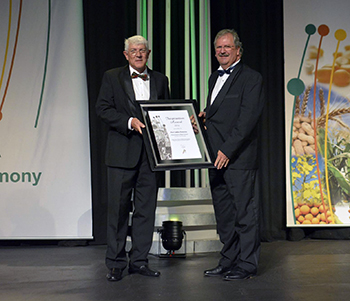Latest News Archive
Please select Category, Year, and then Month to display items
14 June 2024
|
Story Anthony Mthembu
|
Photo Suplied
 Jeremiah Hlahla, a UFS student completing his PhD in Botany at the University of Debrecen as part of an exchange initiative funded by the Erasmus+ Mobility Programme.
Jeremiah Hlahla, a UFS student completing his PhD in Botany at the University of Debrecen as part of an exchange initiative funded by the Erasmus+ Mobility Programme.
As part of an exchange initiative facilitated by the Erasmus+ Mobility Programme, Jeremiah Hlahla, a student at the University of the Free State (UFS), is nearing the completion of his PhD studies at the University of Debrecen in Hungary. Hlahla’s journey, which began in February 2024 and is set to conclude in July 2024, has been a remarkable learning opportunity. “As a first time-traveller to Europe, I have thoroughly enjoyed engaging with people from different countries and cultures,” he said.
The benefits of international collaboration
Hlahla is currently pursuing a PhD in Botany, focusing on plant stress physiology. “My current PhD project investigates the physiological, biochemical and morphological responses of vegetable-type soybean, or edamame, to combined drought and heat stress,’’ he explained. He considers the University of Debrecen the ideal institution to complete his research due to its extensive expertise and resources in similar projects. He noted that his colleagues at Debrecen conduct significant work on plant protection against biotic and abiotic stresses, including salt and drought stress, as well as proteins and amino acids in barley and other legumes.
Given the vast knowledge available on similar projects, Hlahla has found substantial engagement with his work at the University of Debrecen. “Upon arrival, I delivered an introductory lecture presenting my UFS project on the synergistic effects of combined drought and heat stress on the physiology and biochemistry of edamame. It was an engaging session as everyone could relate to my work and asked many questions,’’ he said.
Insights gained from the exchange
Hlahla has also gained valuable lessons that will assist him in his research career, including biotechnology and physiology tools. “I learned how to prepare samples and use high-performance liquid chromatography (HPLC) and reversed-phase ultra-high-performance liquid chromatography (UHPLC) to quantify proteins and amino acids,’’ he said. These techniques are beneficial not only for his current work but will also support future soybean research.
As his experience at the University of Debrecen nears its end, Hlahla reflects on the collaborations and friendships he has formed, which stand out as a significant highlight.
Plant researcher receives prestigious Grain SA award
2016-10-21

Prof Zakkie Pretorius from the UFS Department
of Plant Sciences with Andries Theron,
vice-chairman of Grain SA. Theron presented
the award to Prof Pretorius at Grain SA’s a
nnual gala event, which was held in Midrand
this year.
Photo (read more): Supplied
Photo (spotlight): Charl Devenish
A researcher in the Department of Plant Sciences at the University of the Free State (UFS), Prof Zakkie Pretorius, received the prestigious Grain Producer of the Year Inspiration Award during the annual gala event of Grain SA. Grain SA provides strategic commodity support and services to South African grain producers to assist in the sustainability of the sector.
This award is presented to individuals or organisations in appreciation of excellent contributions to the grain industry. These individuals have also achieved extraordinary results in their respective fields.
Research in the interest of food security
Prof Pretorius has been involved in research on plant diseases and food crops for the past 38 years. His research focus, rust diseases in crops, is especially important for food security.
According to Prof Pretorius, who collaborates with an extensive network of specialist colleagues, his research covers a variety of topics including rust race identification, the discovery of new resistance genes, characterisation of resistance expression in plants, and the mapping of genes. His focus is not only on wheat, but he also researches rust diseases in oats, barley, maize, dry beans, lentils, sunflowers, and soybeans.
Breeding of rust-resistant varieties gains scientific basis
Locally, he has been contracted for several years by the Winter Grain Trust to annually evaluate commercial wheat cultivars and elite germplasm. This information is regularly passed on to the relevant seed companies and breeders, and is also included in the production guidelines of the Agricultural Research Council for disease risk assessment. His research places the breeding and selection of rust-resistant varieties on a solid scientific foundation. A living collection of rust fungus cultures and a large germplasm collection are maintained at the UFS under his supervision.